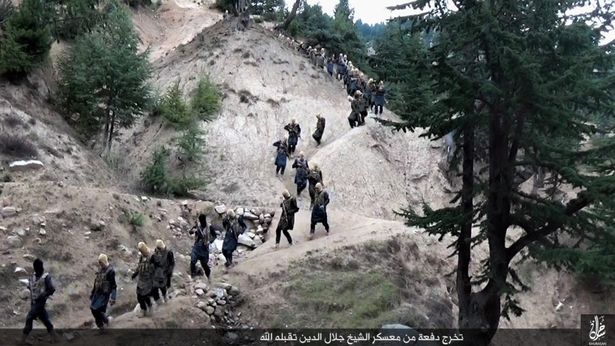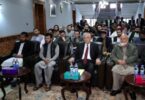KABUL (Khaama Press): The Special Inspector General for Afghanistan Reconstruction (SIGAR) has issued a report to the United States Congress, raising concerns about the resurgence of Al-Qaeda threats in Afghanistan. In this report, the inspector stated that the Al-Qaeda leader, likely located in Afghanistan, has issued statements demanding attacks on U.S., European, and Israeli embassies and buildings.
The inspector presented his quarterly report to the U.S. Congress on Thursday, February 1st underscoring the security landscape in the country.
Within this report, the inspector detailed America’s aid levels to Afghanistan after the Taliban’s takeover, as well as the economic situation and human rights conditions in Afghanistan under Taliban control.
The U.S. special inspector’s report mentioned that following the conflict between Israel and Hamas, the Al-Qaeda leader based in Afghanistan released three press statements, in which he called for attacks on U.S., European, and Israeli embassies and buildings. According to the report, a sanctions monitoring team had previously reported that Al-Qaeda and the Taliban still maintain close ties, with the Taliban providing support to this group. The inspector’s report also highlighted an increase in ISIS attacks on Hazaras and Shia communities in Afghanistan and stated that terrorist threats in Afghanistan have continued over the past three months. Earlier, the United Nations Security Council had disclosed in a recent report that the Taliban maintains its relations with Al-Qaeda, and the Al-Qaeda organization has established eight new training camps in Afghanistan.
These four Al-Qaeda camps have been created in the provinces of Ghazni, Logar, Paktia, and Zabul, and the organization has set up an arms depot in Panjshir. Zabihullah Mujahid, the Taliban’s spokesperson, rejected the new information from the United Nations Security Council regarding Al-Qaeda’s presence in Afghanistan and called it a “systematic plan” for spreading accusations and rumours against the Taliban.
Previously, the American magazine Long War Journal had reported that some members of the Al-Qaeda network work as key managers within the Taliban administration.
According to this report, the deputy head of the Taliban’s intelligence department, the director of education for the group’s defense ministry, and Taliban governors in Kapisa and Nuristan are among the Al-Qaeda members working in the Taliban administration.







